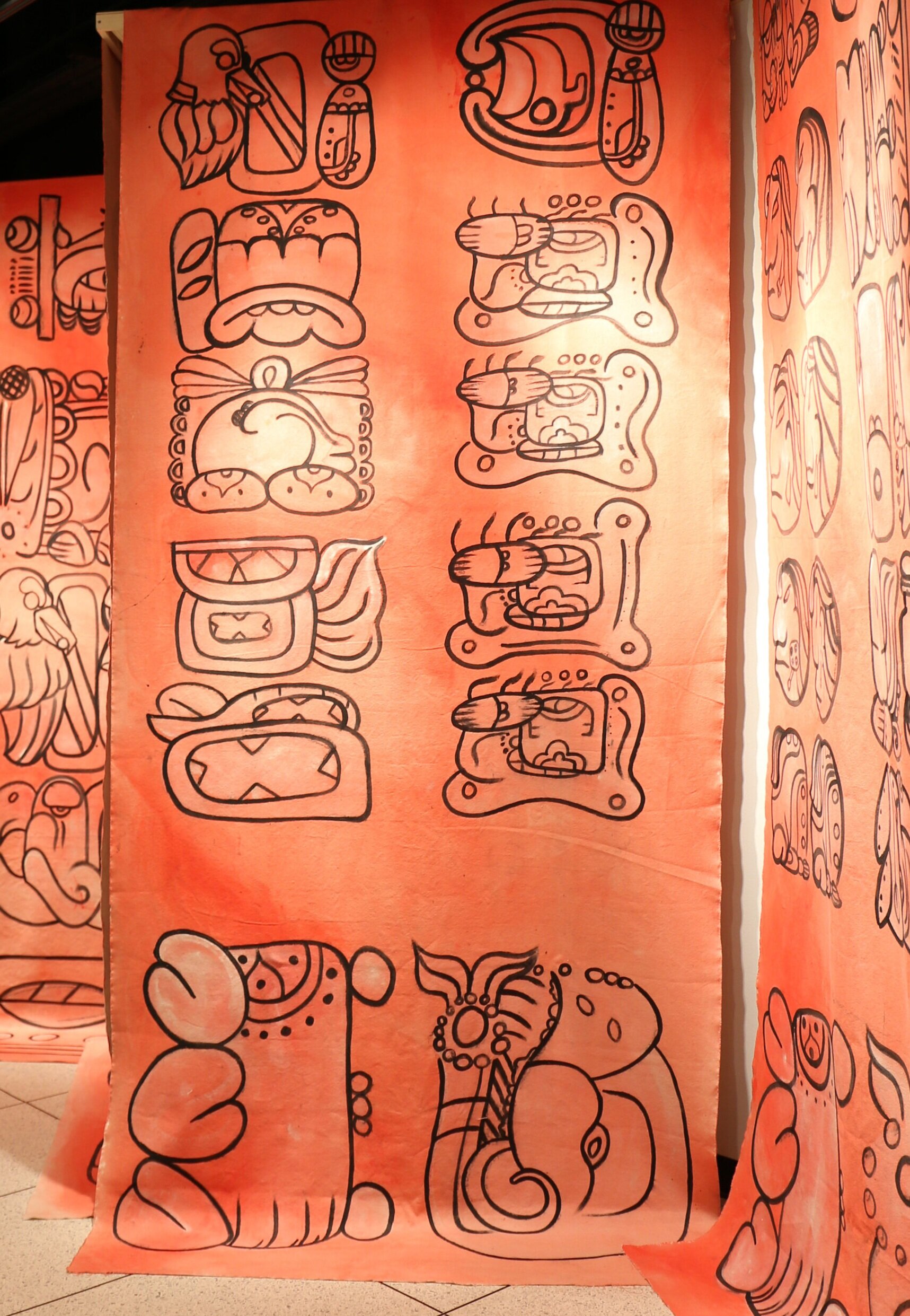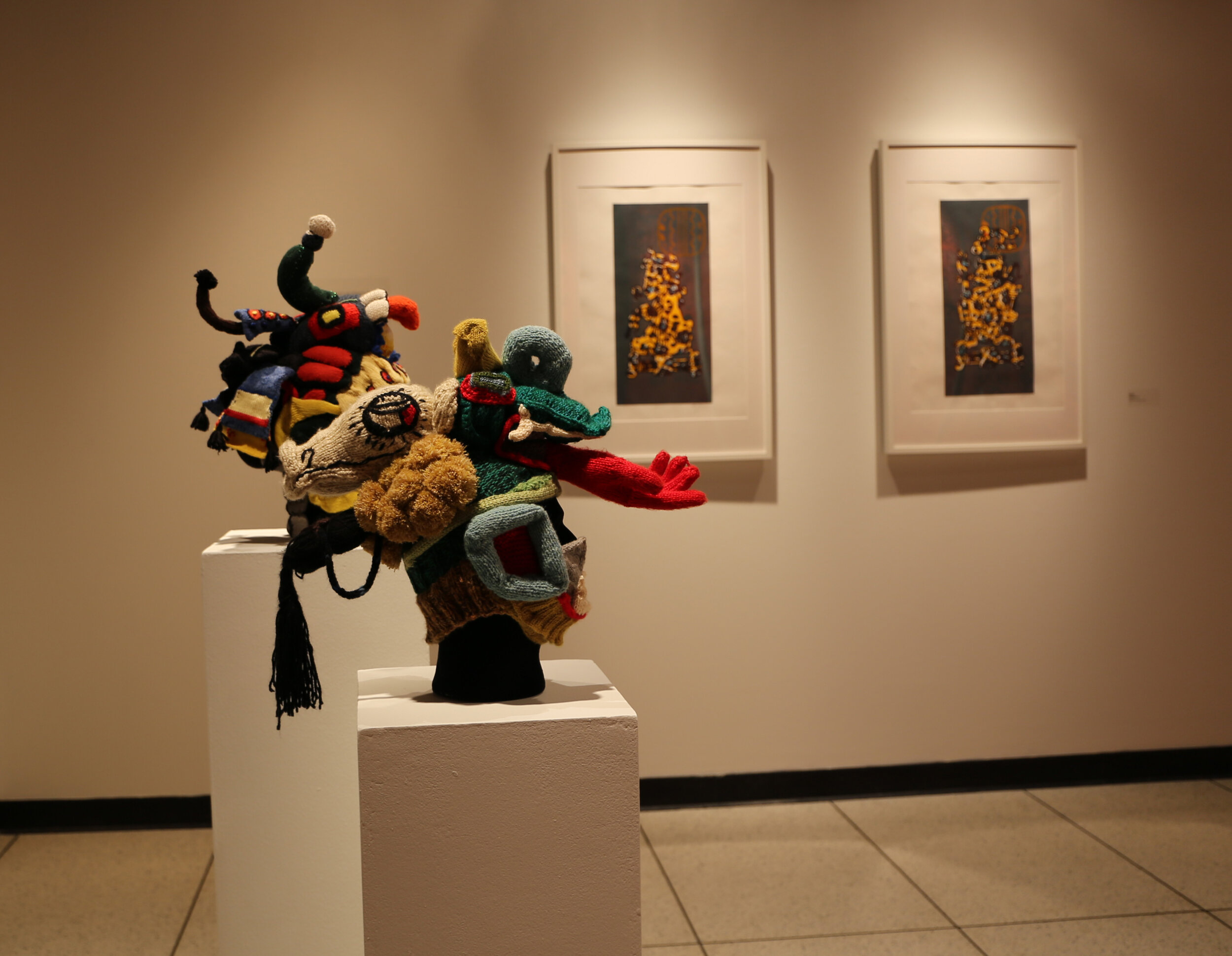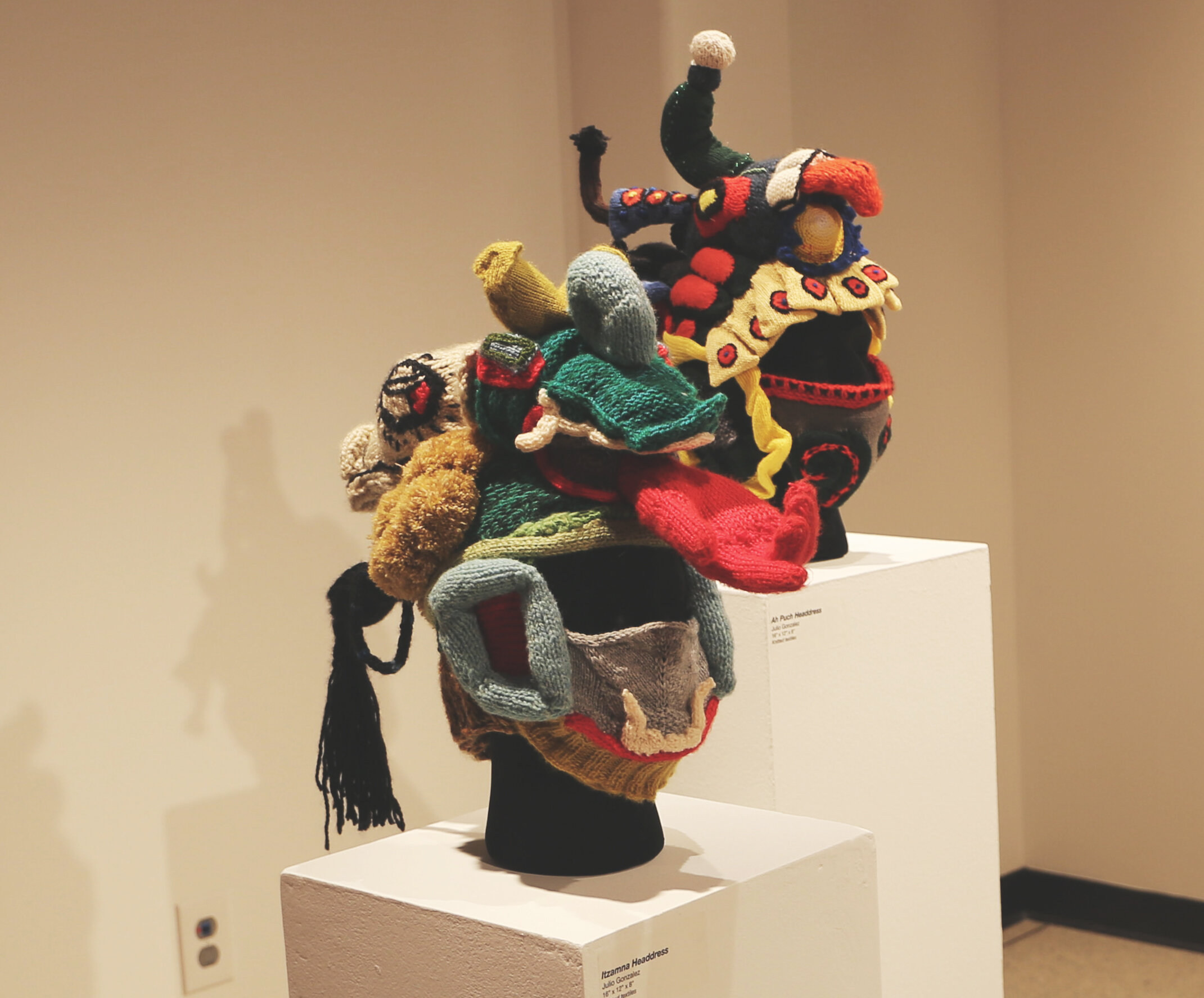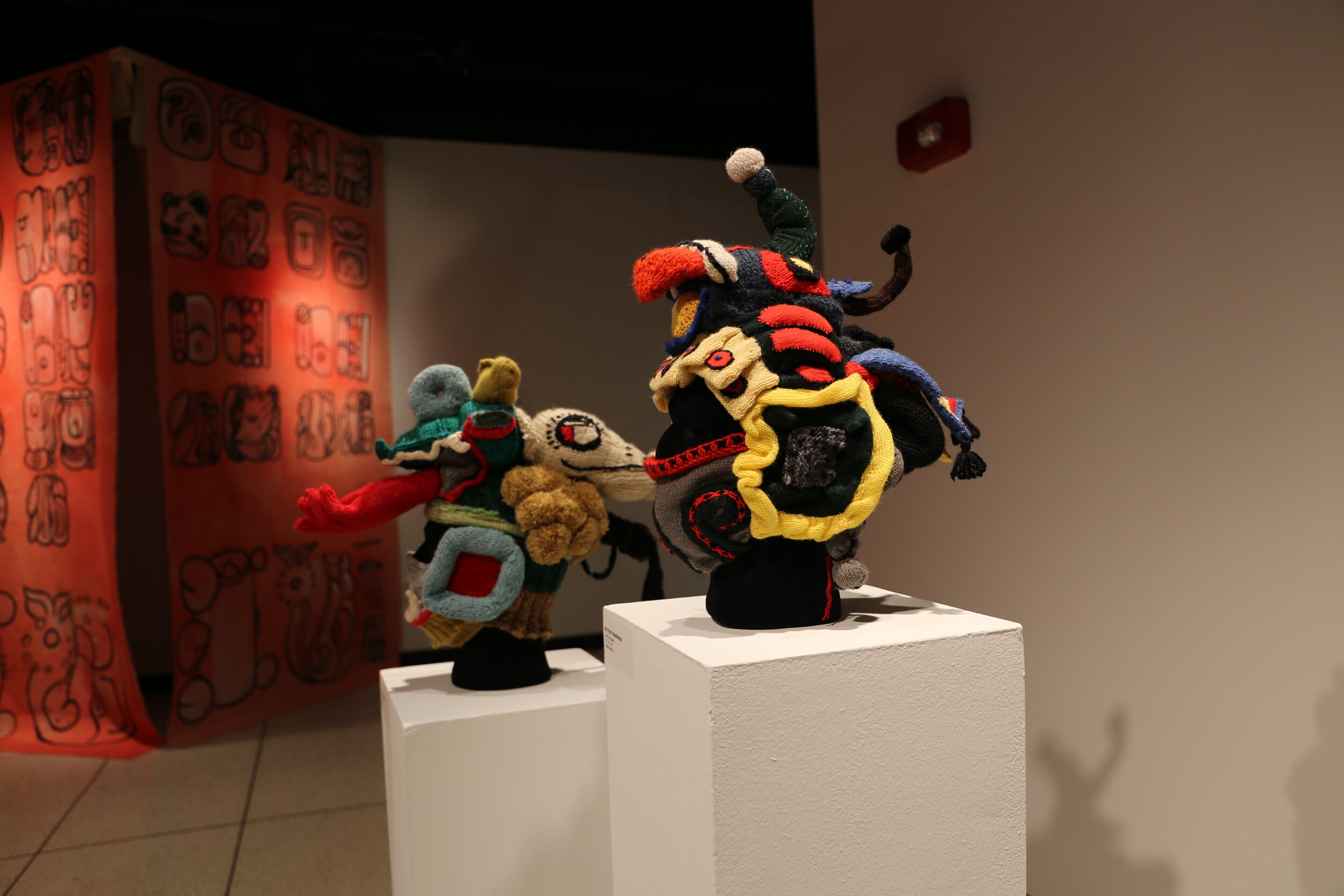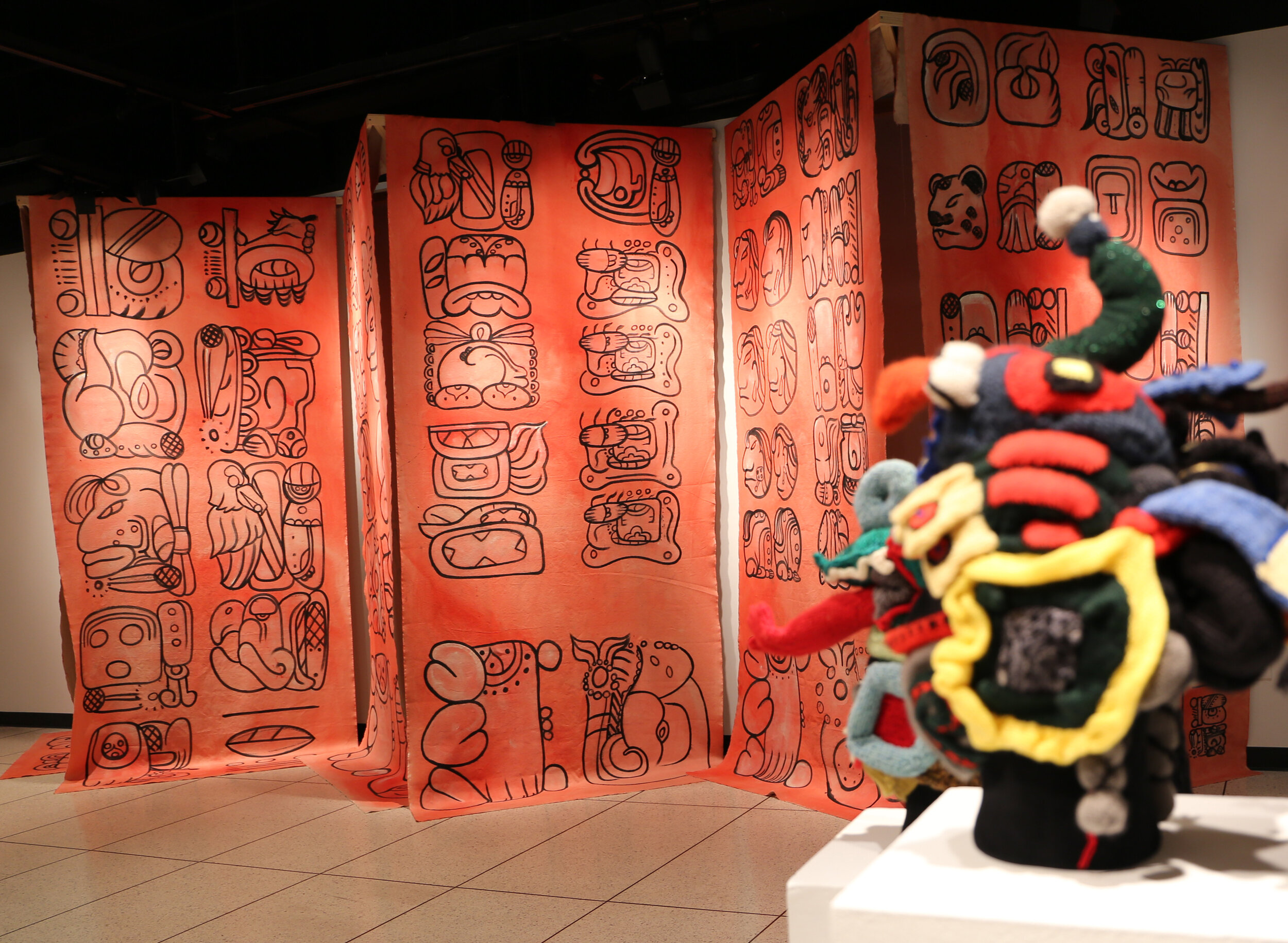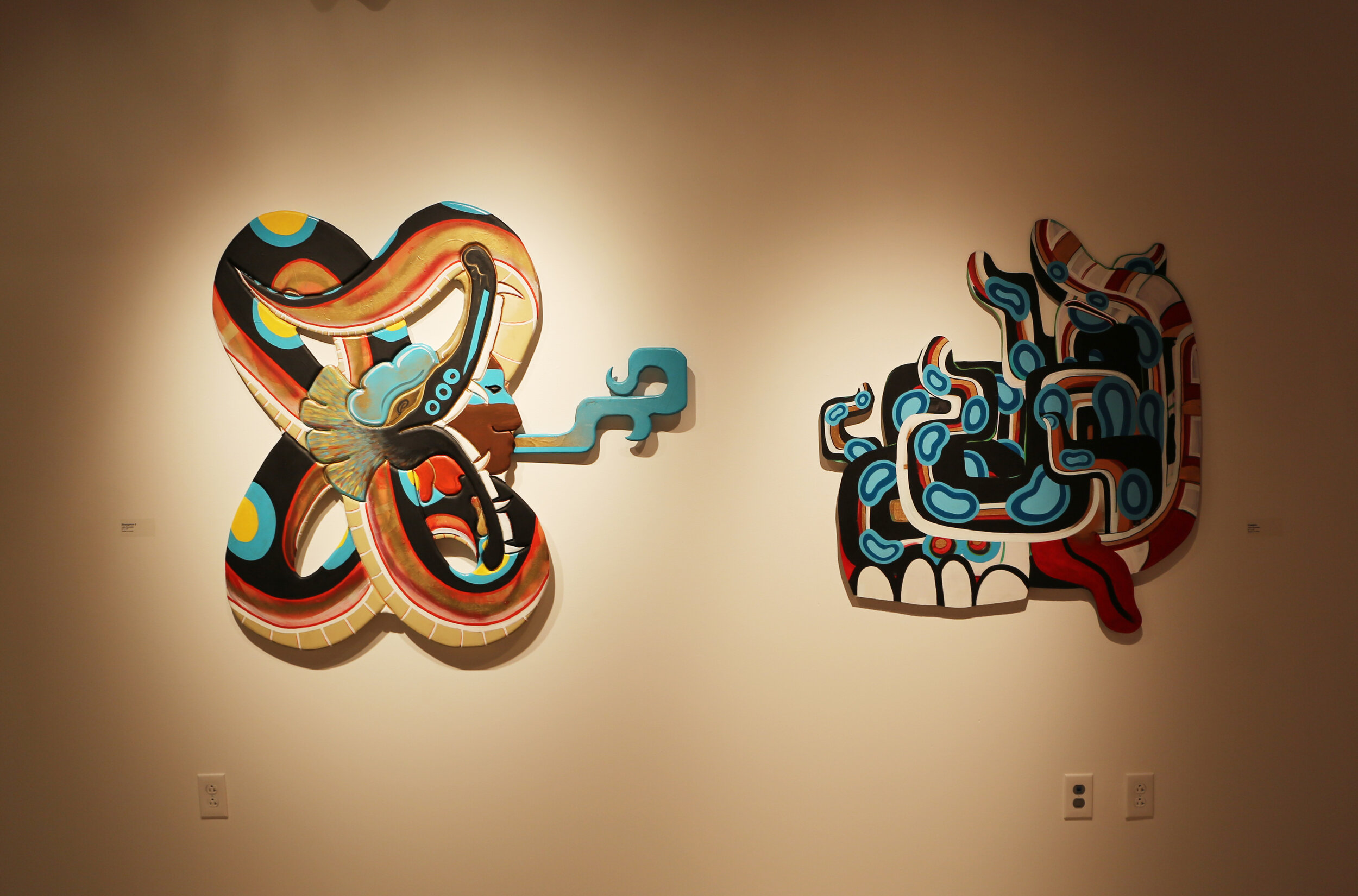Tales of a Modern Scribe is a study of the lost Maya culture found by Gonzalez through the research of his ancestry. This discovery led him to note a critical difference between Euro-American and Mayan culture, the perceptions of time. Contrary to the Euro-American concept of linear time, the Maya believed that time is nonlinear cycle of death and rebirth, where what has been shall be again. Inspired by this idea of continuous renewal, Garcia represents this idea alongside the legacy of sacred Mayan texts called codices.
The ancient Maya called the authors of their codices ah tz’ib, “one who writes or paints.” Through his work, Gonzalez adopts the role of an ah tz’ib, bridging the gap between his lost ancestral culture and lasting human connection to the world with a new Gonzalez Codex.
The Gonzalez Codex evokes human connection by illustration of its theme, Love- a human experience that all cultures share. Through this work, Gonzalez hopes to demonstrate that the destruction of a people’s culture or religion does not erase our shared connection as humans. To illustrate this, he chose to translate into Mayan the four iterations of Greek love: Philia, brotherly love; Storge, familial love; Eros, romantic love; and Agape, self-sacrificing love.
